Top 7 RV Problems and Simple Measures to Solve it
For most active RV adventurers, a travel trailer is their source of excitement heading towards a unique living experience away from home. But any RV owner who’s been driving for two days or longer exactly knows that common problems with RV can become a nightmare. After all, an RV is an all-in-one mobile home which is bound to wear and tear over time.
Common RV Problems and Their Respective Solutions
RV maintenance and repair costs may not seem affordable even if you’re dealing closely with your trusted technician for discounted services. But thousands of ready-made online resources for RV camping were made available, helping you avoid paying hefty sum of money for professional repairs. This article may provide the necessary information as many mechanical breakdowns look manageable as you think if you know how to handle such maintenance issues and basic troubleshooting. If you feel the issue is major and you cannot handle it you can take it to the rv repair shop near me.
So, before you travel, be sure to know these seven common RV problems and find out how you can fix each one:
1. Troubleshooting the RV Electrical System
Handling electrical problems may seem difficult for those without prior experience on electrical repairs. So it’s always a good idea to leave the short circuit issues to the pros.
However, there are a few electrical issues in the camper that you can tackle without further professional intervention. Changing the pushbuttons and switches either in your living spaces or circuit breaker may only require an average skill level and some handy tools.
You may consider using a voltmeter or a power line monitoring device to check the electrical wirings, voltage power of shore power hook-up, and polarity. RV experts also recommend installing a surge protector on your RV interiors as an added protection between your electronic equipment and other electrical-related accidents like lightning strikes.
Also See: 5 Most Probable Ways The World Could End Soon
2. Repairing Roof Leaks
Roof leaks in your precious RV are inevitable since sealants are prone to wear and tear due to the pressure of harsh weather elements. And in due time, your camper may likely experience serious water damage resulting to material staining.
The problem doesn’t stop from there. Water damage can ruin the internal components of your RV, such as metal fixture, lighting components, and even electrical systems. Here’s what you can do to resolve this matter:
- Secure your RV with high-quality UV-resistant, waterproof RV cover, particularly if renting a storage facility isn’t possible.
- If you have enough space, store your camper in a storage facility or any open garage with a roof.
- If possible, maintain an annual application of roofing sealants to counteract broken seals and window cracks.
- Take time to inspect your camper each time you travel away, or before leaving your destination, for apparent signs of water damage, and hire someone to do a Water damage cleanup. You should pay close attention to all roof openings, bathroom vents, and exhaust fans.
3. Maintaining the RV Plumbing System in Good Working Condition
You’ll probably find your camping adventure uncomfortable the moment you start dealing with toilet issues and other plumbing problems.
However, a lot of these plumbing woes are easy to handle as you only need to remind yourself of the following:
- Flush enough water and avoid putting too much toilet paper to prevent clogs and backflow.
- When the RV is hooked up to a sewer connection, don’t leave the black water drain open continuously. By doing so, your black water holding tank will drain all the liquid waste first, allowing sticky sludge to clog the sewer drain pipe.
- When there’s a clog, you may try using some hot water to break down the solid waste through the drain valve, but this may take time to loosen up.
- Whether you’re using metal or PVC pipes, avoid tightening the pipes to prevent water leaks and potential corrosion in the case of metal.
- Perform regular winterizing procedures to prevent the water and discharge lines from freezing if you’re planning on traveling to a winter location. Use an RV specific anti-freeze to carry out the process with the help of your water pump to spread the solution.
Also See: Actual Possibility That the Human Race Will End: The 6th Extinction
4. Fixing the RV Slide Out
Despite the great benefits of providing some extra spaces for your RV interior, the RV slide outs are not exempted from rust, wear-and-tear, and corrosion problems. Performing optimum maintenance care for your slide outs may keep them working effectively for a long time. Here’s what you can do to minimize your slide out problems:
- Lubricate the slide outs on a regular basis to ensure good performance of the moving components. This will reduce problems with rust out and jammed arms of the slide outs.
- Keep the slide out seals lubricated as often as possible to further extend their lifespan, thus helping you avoid high maintenance expenses or potential slide out replacement.
- Always check for leaks which often result to water damage and RV staining when left unattended.
5. Repairing Your RV Air Conditioning System
Your RV air conditioning system is considered a necessity when temperature continues to rise during summer season. Going back to your camper after a long, exhausting outdoor adventure definitely calls for the need of your air conditioning system. But you might end up frustrated once your HVAC breaks down without you knowing it.
So learn these simple HVAC troubleshooting tips before considering getting some professional help:
- Replace or clean up your dirty air vent filter once you notice the air isn’t that cool.
- Replace your broken thermostat once its communication with your AC unit is no longer accurate.
- If you’re driving an old RV unit, consider upgrading your HVAC system from analog to digital models, which can also provide the same cooling results as analog types.
- Check the power voltage and electrical wirings using a multimeter to verify if there’s presence of electricity or none.
Also See: What Would You Do If Internet Disappeared? (Top 10 Things That Would Change Forever)
6. Checking the RV Brakes
Brake problems will likely occur since you’re driving such a heavy, highly sophisticated vehicle. And brake components tend to break down as part of many wear-and-tear scenarios happening in your RV.
Here, you will need an average mechanical skill to replace the brake fluid, drums, and rotors. But don’t forget to equip yourself with the appropriate tools such as stabilizing jacks and safety gloves before lifting the trailer off the ground.
Also, check for the tire condition by looking for cracks, punctures, and worn-out threads to prevent potential tire blowout.
Old tires have something to do with brake performance and overall road safety for everyone on board.
7. Looking for Broken RV Accessories and Parts
RV components are not meant to last a lifetime, though most RVs are outfitted with high-quality parts and vehicle accessories, including but not limited to RV lights, roofing, rear/side mirrors, awnings, canopies, and other finishing touches. The good thing is that a lot of these RV components are replaceable and you may consider upgrading the looks once you have a room for budget.
- Make sure to keep extra pieces of light bulbs to replace the burned out ones.
- Don’t forget to switch the lights off before replacing them to prevent accidents of electric shocks.
- If bulb replacement doesn’t work, consider seeking for a professional help since you might be dealing with more serious electrical issues.
- Replace broken windows and seams whenever possible to further delay the effects of water damage. Use manufacturer-grade window sealants to repair the seals.
- When purchasing RV windows, always take the actual measurements and find the appropriate type according to vehicle model.
- Always bring a standard water pressure regulator to help you check the water pressure running through your plumbing system.
- For RV tires, better use a tire pressure gauge to maintain the appropriate tire pressure for safe driving.
- Use wheel stabilizers to help your leveling jacks remain stable when you park the RV.
- Utilize conventional or manual cooking accessories to help save more electrical power.
Learning these intuitive DIY repairs may help you save thousands of dollars while keeping your rig rolling for more camping moments for the whole family.
Main Image Source : Pixabay
Also See: Bubble Wrap Popping Sound Effect|Free




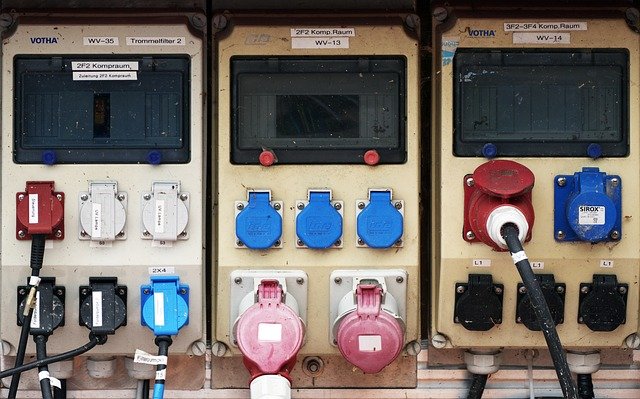
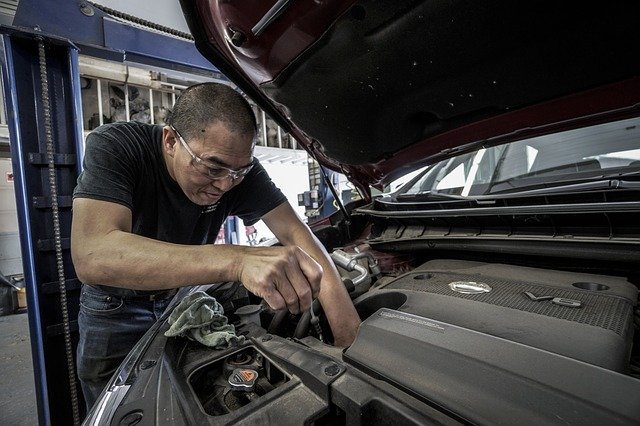
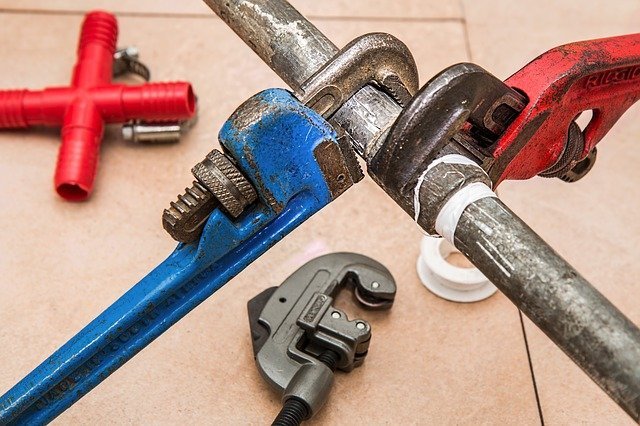
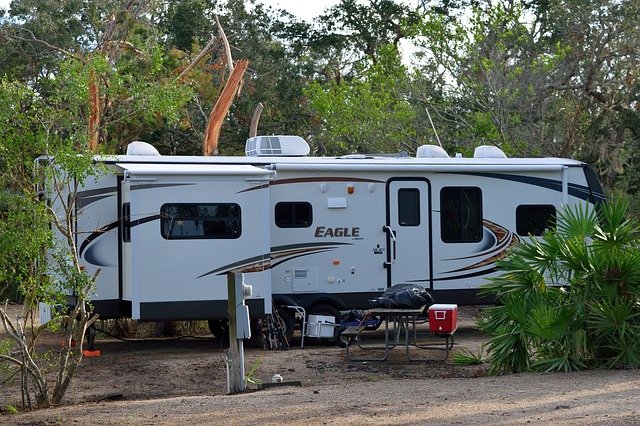

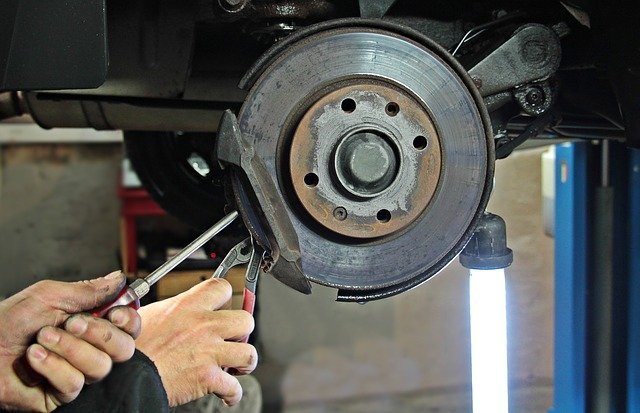
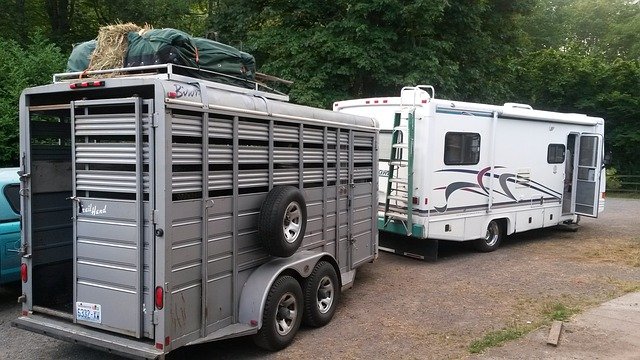








Thanks for sharing the 7 common rv problem solutions everyone has to know before travelling.